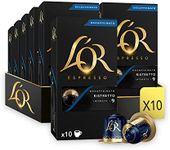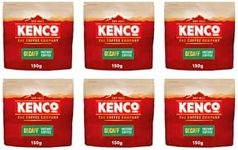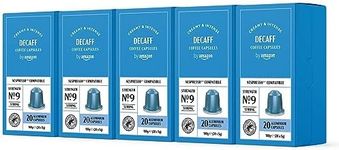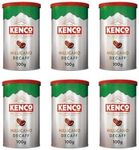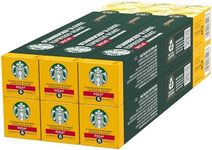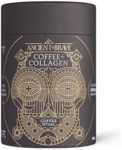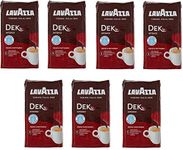Buying Guide for the Best Decaf Coffees
Choosing the right decaf coffee can be a delightful journey if you know what to look for. Decaf coffee offers the rich flavors of regular coffee without the caffeine, making it a great choice for those who are sensitive to caffeine or prefer to enjoy coffee at any time of the day. When selecting decaf coffee, consider the flavor profile, the decaffeination process, the roast level, and the origin of the beans. Each of these factors can significantly influence the taste and quality of your coffee experience.Flavor ProfileThe flavor profile of decaf coffee refers to the taste characteristics that you experience when drinking it. This can include notes of chocolate, fruit, nuts, or spices. The flavor profile is important because it determines the overall taste experience. When choosing a decaf coffee, consider what flavors you enjoy. If you prefer a sweeter taste, look for coffees with chocolate or caramel notes. For a brighter, more acidic taste, opt for coffees with fruity or citrus notes. Your personal taste preference should guide your choice here.
Decaffeination ProcessThe decaffeination process is how caffeine is removed from the coffee beans. This is important because it can affect both the flavor and the health aspects of the coffee. Common methods include the Swiss Water Process, CO2 Process, and chemical solvents. The Swiss Water Process is chemical-free and tends to preserve more of the coffee's original flavor, making it a popular choice for those concerned about chemical residues. If you are sensitive to chemicals or prefer a more natural product, look for coffees that use the Swiss Water Process.
Roast LevelRoast level refers to how long and at what temperature the coffee beans are roasted. This is important because it affects the flavor, aroma, and body of the coffee. Light roasts tend to have a more acidic and fruity flavor, while dark roasts have a bolder, more robust taste with less acidity. If you enjoy a milder, more nuanced flavor, a light or medium roast might be best for you. If you prefer a strong, rich taste, a dark roast could be the right choice.
Origin of BeansThe origin of the coffee beans refers to the geographical location where the beans were grown. This is important because different regions produce beans with distinct flavor profiles due to variations in climate, soil, and altitude. For example, beans from Africa often have fruity and floral notes, while those from South America might have nutty and chocolatey flavors. Consider what flavor profiles you enjoy and choose a coffee from a region that typically produces those flavors.
